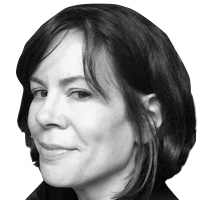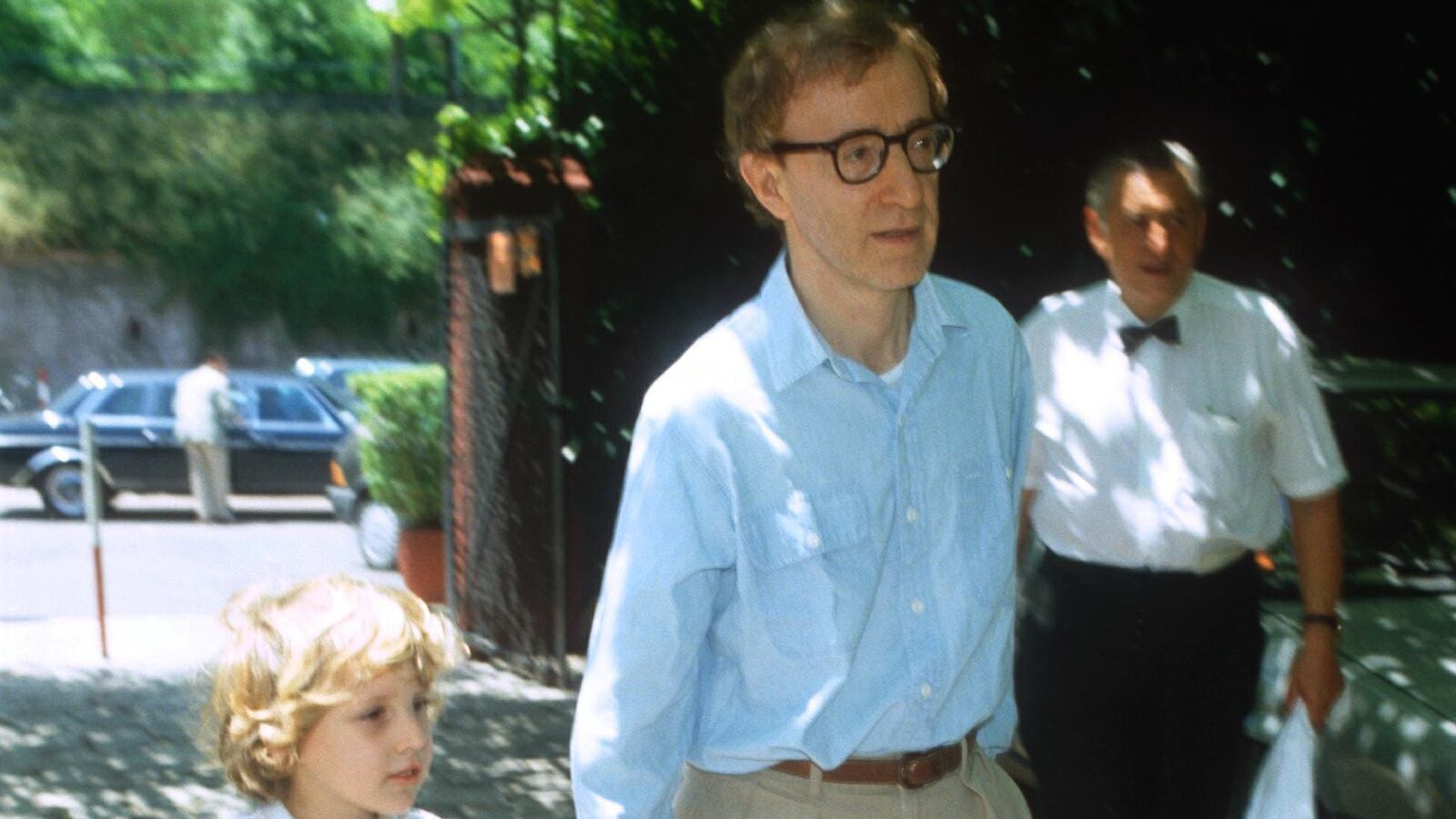Like so many people in my Facebook and Twitter feeds, I read Dylan Farrow’s open letter in the New York Times with initial disbelief—or, perhaps closer to the truth, an almost irresistible desire not to believe. I scanned her text for signs of implausibility. Farrow’s account of her alleged train-set seduction by Woody Allen sounded conceivable, but the quick hop to the clinical—“then he sexually assaulted me”—came off removed and robotic, possibly calculating.

But then, if I had written that kind of letter to my family at age 28, some robotic distance might have crept in, too. At the time I was processing an unwelcome reality: I was sexually abused by my uncle.
The circumstances between Farrow’s and mine were a world apart, yet somehow the same. My uncle was a product of the Hannover bourgeoisie—his parents founded the golf club, their three children needn’t worry about careers or livelihoods. To my grandmother, “Oma” in German, he could do no harm.
When my parents left me at Oma’s every summer while they traveled for weeks on end to Paris, Lausanne, and London, my uncle’s daily visits to my bedroom didn’t strike anyone as strange. He must really love you, they said. But I got scared, and my little-girl self tried to tell my parents something was going on. Though it had been going on for years, I must have been five when I tried to tell them—just two years younger than Dylan Farrow’s age when she was allegedly molested. My parents told me I was making it up.
Well into my 20s, I believed them. Only when I entered the office of a Freudian analyst at age 24 did our first session end with me whispering the words: “I think something happened.”
Eventually I became convinced that something did happen, and I realized what it was: My uncle sexually molested me. For a while, my mother didn’t want to believe me. Eventually she came around and when I was 30, she accompanied me to Hannover to confront him in the lobby of the Hotel Luisenhof. His face was drawn and he looked thin, but he was still handsome in his late 60s. I felt numb and could barely get the words out, in German. “You touched me,” I told him, though there had been more.
His denial was fierce, dismissive. One of his hands trembled. He asked my mother for 500 euros.
My uncle’s trembling is from Parkinson’s, which he’s dying of now in a German hospital. His only visitor is an elderly Hannoverian who remembers that he did a favor for her brother 40 years ago. She takes him out for ice cream every week. One day she phoned my mother in America, asking why she was never there to comfort her sick brother. My mother told her the truth.
A couple of years ago, I got a phone call from my mom. She told me that my uncle’s weekly visitor had asked him if my accusations were true. After a knee-jerk denial, he finally admitted that yes, he’d done it. He said he was terribly ashamed.
A tiny universe of family and privilege protected my uncle. The cost was a little girl’s sense of self, and her innocence. If the “gaslight” Farrow mentions in her essay—a reference to the old film where an evil husband drives his wife crazy by obliterating her sense of reality—can happen in an ordinary family, it seems exponentially more plausible for a major public figure and great creative talent, a man whose fame and reputation touches even strangers.
When I first read Dylan’s story I thought, like my parents before me, that maybe she made it up. I’m still having trouble grasping it, though it’s my story, too.





